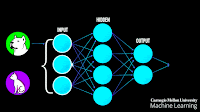24/04/2012
IDIOM THREE IN ONE [1]
IDIOM THREE IN ONE. Idiom atau ungkapan adalah gabungan kata yang membentuk arti baru di mana arti tersebut tidak berhubungan dengan kata yang membentuknya.
Salah satu skill yang sangat menentukan dalam menyelesaikan tes toefl dengan baik adalah penguasaan Idiom. Dan satu-satunya cara untuk memahaminya, mengerti makna dari idiom itu sendiri. Ia tidak dapat diterjemahkan secara literal.
Oleh karena penguasaan Idiom sangat penting maka, secara berkala akan di posting di topik IDIOM THREE IN ONE ini. Selain textnya, Anda juga dapat mendownload Audionya sehingga belajar Idiom juga bisa belajar Pronunciation dan Grammar sekaligus. itulah IDIOM THREE IN ONE. Idiom ini di sadur dari Essential Idiom in English by Robert J. Dixson, Idiom yang paling sering muncul dalam Tes Toefl. Selamat menikmati.
LESSON 1
Salah satu skill yang sangat menentukan dalam menyelesaikan tes toefl dengan baik adalah penguasaan Idiom. Dan satu-satunya cara untuk memahaminya, mengerti makna dari idiom itu sendiri. Ia tidak dapat diterjemahkan secara literal.
Oleh karena penguasaan Idiom sangat penting maka, secara berkala akan di posting di topik IDIOM THREE IN ONE ini. Selain textnya, Anda juga dapat mendownload Audionya sehingga belajar Idiom juga bisa belajar Pronunciation dan Grammar sekaligus. itulah IDIOM THREE IN ONE. Idiom ini di sadur dari Essential Idiom in English by Robert J. Dixson, Idiom yang paling sering muncul dalam Tes Toefl. Selamat menikmati.
LESSON 1
1. to get in/to get on: to enter or to board a vehicle
To get in is used for cars; to get on is used for all other forms of transportation.
1. It's easiest to get in the car from the driver's side. The door on the other side doesn't work well.
2. I always get on the bus to work at 34th Street.
2. to get out of/to get off: to leave or to descend from a vehicle.
To get out of is used for cars; to get off is used for all other forms of transportation.
1. Why don't we stop and get out of the car for a while?
2. Helen got off the train at the 42nd Street terminal.
3. to put on: to place on oneself (usually said of clothes) (S)
1.Mary put on her coat and left the room.
2. Put your hat on before you leave the house.
4. to take off: to remove (usually said of clothes) (S)
1. John took off his jacket as he entered the office.
2. Take your sweater off. The room is very warm.
5. to call up: to telephone (also: to give some one a call) (S)
To call can be used instead of to call up, as in the first example below.
o I forgot to call up Mr. Jones yesterday. I'd better call him now.
o Call me up tomorrow, Jane. We'll arrange a time to have lunch together.
o I promise to give you a call as soon as I arrive in New York.
6. to turn on: to start or cause to function (also: to switch on) (S)
o Please turn on the light; it's too dark in here.
o Do you know who turned the air conditioning on?
7. to turn off: to cause to stop functioning (also: to switch off, to shut off) (S)
Turn on and turn off, as well as their related forms, are used for things that flow, such as electricity, water, gas, etc.
o Please turn off the light when you leave the room.
o Are you really listening to the radio, or should I turn it off?
8. right away: very soon; immediately (also: at once)
o Dad says that dinner will be ready right away, so we'd better wash our hands and set the table.
o Tell Will to come to my office right away. I must see him immediately.
o Stop playing that loud music at once!
9. to pick up: to lift form the floor, table, etc., with one's fingers (S)
o Harry picked up the newspaper that was on the front doorstep.
o Could you pick your toy up before someone falls over it?
10. sooner or later: eventually, after a period of time
o If you study English seriously, sooner or later you'll become fluent.
o I'm too tired to do my homework now; I'm sure I'll do it sooner or later.
11.to get up: to arise, to rise from a bed; to make someone arise (S)
For the last definition a noun phrase must separate the verb and particle.
o Carla gets up at seven o'clock every morning.
o At what time should we get the children up tomorrow?
12. at first: in the beginning, originally
o At first English was difficult for him, but later he made great progress.
o I thought at first that it was Sheila calling, but then I realized that it was Betty.
(S ; Separable / dapat dipisahkan)
Download Audio "here".
@alamyin, keep share and have fun !
(S ; Separable / dapat dipisahkan)
Download Audio "here".
@alamyin, keep share and have fun !
















